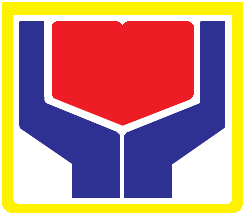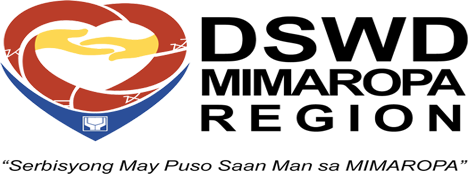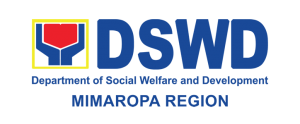“Dati, pangarap lang [namin] ang tubig [In the past, water was just a far-off dream for us],” uttered Ms. Victoria Padullo, the barangay captain of Malitbog in Bongabong, Oriental Mindoro. Her words seemed to energize the participants. Several barangay volunteers echoed in unison, and the slightly cramped room became abuzz with excitement, the people sharing their own experiences in what they deemed as the time when water was so scarce and difficult in their own barangay.
Ms. Padullo started public service in the barangay at the age of 15 when became part of the Sangguniang Kabataan. From there, she served as Kagawad, and later on as the Barangay Captain, a position she holds today. What made her pursue a career in public service is her aspiration to help her barangay, which was sorely lacking in basic services and amenities, including water, be it for drinking, washing, or cleaning.
The lack of clean water, said Ms. Padullo, has been the constant battle that has been fought early on by the barangay.
Unlike other barangays in the municipality, having clean water has long been a struggle for Malitbog. Ms. Padullo shared that although some of the residents are able to get water from a deep well, the liquid is yellowish and gives off a foul, rusty smell. Unfortunately, the residents were forced to use this for washing clothes and dishes, having left with no other choice. “Iyong mga puting damit, madilaw na pagkatapos malabhan, gawa ng tubig [White clothes turn yellow after you wash these because of the water],” Ms. Padullo said.
Even though they were forced to use the water from the deep well in washing clothes and dishes, they knew that it was not potable, so they had to buy drinking water from the Poblacion for PhP 5.00-7.00 per gallon. Those who were well-off installed water pumps in their homes.
Even though they purchased drinking water, the water in their barangay still led to health problems. Children in the barangay often suffered from diarrhea and other water-related diseases. It also fostered poor hygiene and poor sanitation, as students went to school without taking a bath.
The community was forced to bear with theis situation for several years. It was in 2006 when Kapit-Bisig Laban sa Kahirapan-Comprehensive and Integrated Delivery of Social Services (Kalahi-CIDSS) came to their barangay that eventually changed the course of their everyday life.
Kalahi-CIDSS is an anti-poverty project implemented by the DSWD which aims to empower communities through greater participation of the people in local governance, particularly those involving poverty alleviation measures.
When Kalahi-CIDSS entered Bongabong, all 36 of its barangays of Bongabong fully participated, each village hoping that their proposed community project will be prioritized to address their most pressing needs. Barangay Malitbog hoped that their dream of getting a water system would finally be realized.
Unfortunately, Barangay Malitbog was not prioritized in the three cycles of implementation of Kalahi-CIDSS in the municipality, despite the community’s combined efforts and resources. “Talagang nakakalungkot na hindi kami nasama sa tatlong cycle na iyon para mapondohan ang aming water system sub-project [We were really sad that we were not prioritized in those three cycles to get funding for our water system sub-project],” lamented Ms. Padullo.
Ms. Padullo said that there were times in those three cycles that she prayed that the needs of the residents change so that they can stand a chance during the prioritization. Yet this was a farfetched wish, since it really was the water system that the barangay needed. “Hindi naman mababago iyon dahil iyon ang lumalalabas sa PSA, at sa proseso ng Kalahi, importante ang boses ng tao [That will not change, because that is always the concern that was always raised by the residents during the Participatory Situational Analysis. In Kalahi-CIDSS, the voice of the people is listened to],” she said.
When Bongabong was selected again to implement Makamasang Tugon, a modality of Kalahi-CIDSS, the barangay participated fully again. This time, however, they became more careful in preparing the needed documents. Picking off lessons from the earlier three cycles, Malitbog finally became one of the priorized barangays, ranking 6th during the Municipal Inter-Barangay Forum (MIBF). The moment was so memorable for the residents of Barangay Malitbog that they jumped for joy upon finding out that their water system will finally be funded.
They waited for years for a water system. With the help of Kalahi-CIDSS, they now enjoy the sight of clean and potable water flowing from the 23 tap stands installed in the barangay.
The water system has made a difference in the lives of every families residing in Brgy. Malitbog. They won’t have to worry about water anymore, since they now have access to it. Since the families no longer have to pay for drinking water, they are able to invest in other things, such as food and providing for their children’s needs. People bathe every day, as they are now more conscious of proper sanitation and hygiene. Ms. Precy Almarez, the Kagawad for Health and Education, also noted that there was a decrease in the number of children who are brought to the hospital due to diarrhea and water-related diseases.
The water system also brought in a new way of development for the residents. Apart from these short-term benefits that people enjoy, the water system helped a lot in swine production, one of the industries in the barangay. Water is essential in the business because it is used in the cleaning of wastes of the pigs. Having water in the community now helped these enterprising residents. Some owners opt for accommodating a number of pigs to look after to gain a bigger profit. One resident, Ms. Emiliana Mandigma, earns a Php12,000 commission for the swine production. More people are encouraged to engage in order to have a commission, enough to provide for their family’s needs.
The community has also set up an organization to take care of their water system. The Barangay Water System Association of Malitbog collects an amount of Php20,000 a month for the operations and maintenance of the water system.
The level II water system of Malitbog incurred a total cost of Php 4,290,000.00, with a Kalahi-CIDSS grant of Php 3,375,659.24. The sub-project benefited 576 households, of which all are residents of Barangay Malitbog. The sub-project was completed last December 2012.
Barangay Malitbog knows that access to clean water is not something they can take for granted. Having water in the community has brought them far from the situation they were previously in. Today, they exude with vibrancy, because clean water is no longer a far-off dream for them. ###
![]()


